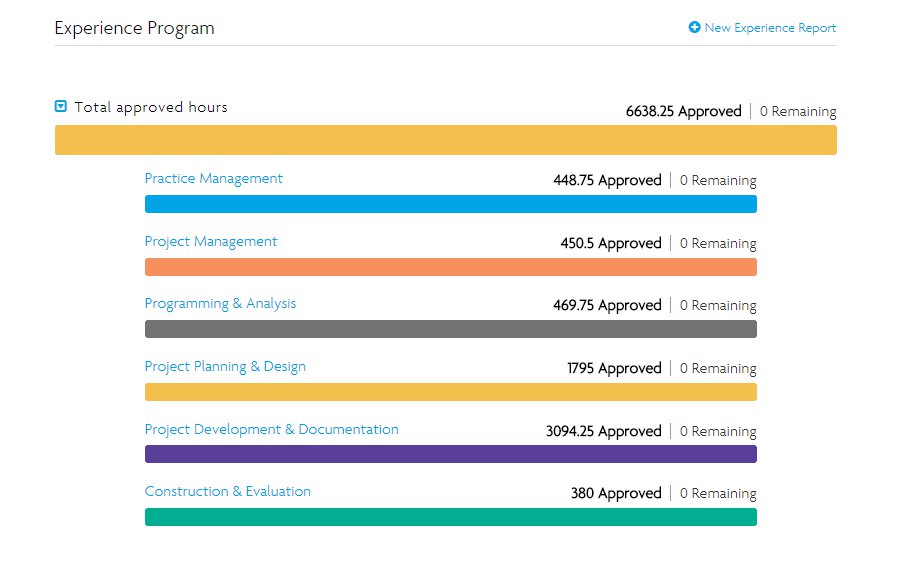11 ARE Study Tips To Help You Succeed

One of the keys to being successful on the Architecture Registration Exams is knowing essential tips and tricks. Below we’ve listed 11 of the best ARE study tips to help you pass your exams.
1. Figure out how you learn best
Everyone learns differently and the way you’re used to learning isn’t necessarily the best way. Most people are familiar with the three different types of learning styles: tactile, auditory, and visual. However new research suggests there are actually eight intelligences. Reference the table below and brainstorm if there are any additional resources you should be working into your ARE study materials.
Eight intelligences
| Intelligence Area | Strengths | Preferences | Learns best through | Needs |
|---|---|---|---|---|
| Verbal / Linguistic | Writing, reading, memorizing dates, thinking in words, telling stories | Write, read, tell stories, talk, memorize, work at solving puzzles | Hearing and seeing words, speaking, reading, writing, discussing and debating | Books, tapes, paper diaries, writing tools, dialogue, discussion, debated, stories, etc. |
| Mathematical/ Logical | Math, logic, problem-solving, reasoning, patterns | Question, work with numbers, experiment, solve problems | Working with relationships and patterns, classifying, categorizing, working with the abstract | Things to think about and explore, science materials, manipulative, trips to the planetarium and science museum, etc. |
| Visual / Spatial | Maps, reading charts, drawing, mazes, puzzles, imagining things, visualization | Draw, build, design, create, daydream, look at pictures | Working with pictures and colors, visualizing, using the mind's eye, drawing | LEGOs, video, movies, slides, art, imagination games, mazes, puzzles, illustrated book, trips to art museums, etc. |
| Bodily / Kinesthetic | Athletics, dancing, crafts, using tools, acting | Move around, touch and talk, body language | Touching, moving, knowledge through bodily sensations, processing | Role-play, drama, things to build, movement, sports and physical games, tactile experiences, hands-on learning, etc. |
| Musical | Picking up sounds, remembering melodies, rhythms, singing | Sing, play an instrument, listen to music, hum | Rhythm, singing, melody, listening to music and melodies | Sing-along time, trips to concerts, music playing at home and school, musical instruments, etc. |
| Interpersonal | Leading, organizing, understanding people, communicating, resolving conflicts, selling | Talk to people, have friends, join groups | Comparing, relating, sharing, interviewing, cooperating | Friends, group games, social gatherings, community events, clubs, mentors/ apprenticeships, etc. |
| Intrapersonal | Recognizing strengths and weaknesses, setting goals, understanding self | Work alone, reflect pursue interests | Working alone, having space, reflecting, doing self-paced projects | Secret places, time alone, self-paced projects, choices, etc. |
| Naturalistic | Understanding nature, making distinctions, identifying flora and fauna | Be involved with nature, make distinctions | Working in nature, exploring living things, learning about plants and natural events | Order, same/different, connections to real life and science issues, patterns |
2. Align your AXP with your tests
AXP aligns directly with the AREs so use that to your advantage. We recommend sitting down with your AXP supervisor and discussing your goals and projected ARE timeline. Try to get real world experience in each category as you’re studying for it. Just be careful with this one, it’s possible your firm doesn’t do everything quite “by the book”. Ask questions and don’t be afraid to challenge the status quo if you learn a “by the book” method that could help your firm.
3. Use more than one resource
We think our ARE practice exams are the best resource on the market at preparing candidates for taking the actual exams. However, other resources may present information on a specific topic in a way that resonates with you better. We recommend always using at least two (general) resources when studying for the exam. Feel free to checkout all of the ARE 5.0 study materials too. A lot of the resources listed there and recommended by NCARB will go a long way throughout your entire career.
4. Simulate the exam environment
We think it’s important to study in a way that’s similar to how you’ll take the ARE which is why we offer timed practice exams for each division. Dedicate time to sit down for a practice exam so you can feel what that time constraint feels like.
5. Use test taking triggers
Do you have a favorite sweatshirt you like you wear when you’re studying? Wear it during your exam. Or maybe you listen to a certain kind of music while you study, on your ride to your exam, listen to that music. Use triggers to get you in that ARE state of mind.
6. Stay curious
One of our favorite ARE study tips is to simply stay curious. We’re surrounded by buildings. If you see something on our around a building and don’t know what it is or how it works look it up. This is especially helpful when you get to any exams that have systems.
7. Join a group
One of the toughest things about the ARE is you have to do it on your own and sometimes it can feel like you’re on an island. We recommend joining a facebook group, forum, or checking out your local AIA chapter to find other candidates studying for the exams.
8. Be consistent
Set aside time on a daily basis to study. Even if it’s only 15 minutes or reading a single page from a resource. commit to it every day. But don’t beat yourself up if you miss a day either. Just get back on the horse. This is a marathon, not a sprint.
9. Create your own questions
Instead of (or in addition to) making flash cards try your hand at creating your own multiple choice questions. This exercise can help you get into the minds of the Architects who make the questions and can help when taking the exams.
10. Give yourself a deadline – One of our favorite ARE study tips
It’s easy to promise yourself to take an exam and then just keep putting it off without a hard deadline. We encourage candidates to sign up for your exam before you start studying so your feet are held to the fire. Life is always going to be crazy, so don’t use that as an excuse.
11. Get familiar with the software
NCARB puts out some mini-practice exams so that you can experience their software. Try these out so you’re familiar with the format and can find your way around. Know what every button on the calculator does and how to quickly find the one’s you’ll need.
Have one of your own ARE study tips you’d like to share? Leave it in the comments below.




No comments yet.